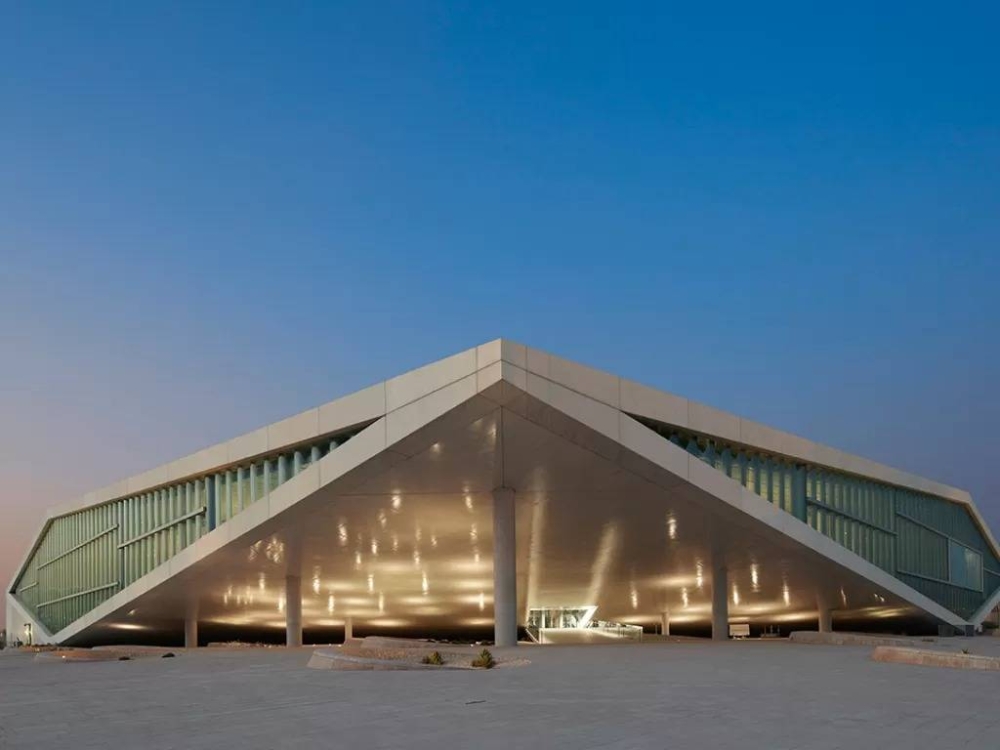
Qatar National Library (QNL) plans to launch the Digital Portal for Family Archives next year, to publish digitized materials from Qatari families and collectors' collections and make them available electronically.
The Digital Family Archive Project is a key initiative by QNL's vision to preserve and make available materials related to the history and heritage of Qatar and the Gulf region. The project aims to collect, digitize, and provide access to archival materials, photographs, correspondence, and other historical documents owned by Qatari families, while ensuring that the original copies remain with their owners.
Director of the Family Archives Project and Head of Collections Access at the Heritage Library at QNL, Maryam Al Mutawa, said in exclusive statements to Qatar News Agency (QNA) that work is currently underway to develop and prepare the digital portal to publish digitized materials for family collections, which is expected to be launched next year, noting that there is a great welcome from families to digitize their personal historical collections.
She emphasized the library's commitment to ensuring the privacy and confidentiality of sensitive documents and data. Direct communication with families or document holders will determine which materials are made publicly accessible via the digital platform and which are preserved solely for specific research purposes.
Al Mutawa added that the library provides restoration services for some materials for the purpose of maintaining and preserving them, pointing out that this project aims to enrich the sources of the general history of the State of Qatar, as Qatari families and heritage collectors possess valuable documents that reflect the importance of Qatar and the depth of its history throughout the ages. She also stressed that the library appreciates the value of these documents as a valuable and precious family and personal legacy, and therefore families can keep the original copies and at the same time participate in this important project and help preserve Qatari history for future generations.
She highlighted that the digital family archive offers essential primary sources on the social, commercial, and political history of the Gulf region, which contributes to enhancing research areas in Gulf studies by providing valuable local materials for research and scholarship on Qatar and the Gulf, while also preserving this national heritage digitally for future generations, adding that these digitized materials will be made available through the QNL website, which will enable researchers and those interested in Gulf history from different countries of the world to view these materials for free and easily whenever they want.
Director of the Family Archive Project and Head of Collection Access at the Heritage Library in QNL Maryam Al Mutawa announced that the digitized archival materials include photos, correspondence, stamps, travel documents, ID cards, passports, sale and purchase contracts, wills, inheritances, and other items. These documents reflect Qatar's cultural, historical, and geographical heritage, with the oldest document dating back to 1794 a land sale deed for a Qatari family in Bushehr. The archive also includes correspondence from the 1940s and 1950s, a period of significant transformation in Qatar from pearl diving to oil extraction, marking the beginning of the modern era. Additionally, the collection features audio recordings, which are crucial sources of local memory.
Regarding the project's benefits, Al Mutawa explained that these documents will be used for preservation, documentation, and research purposes. Once the digitization of items is complete, the library will make these digital images available on a dedicated portal for researchers, scholars, and anyone interested in Qatar's history, offering insights beyond official documents and traditional historical sources. This access will be provided in agreement with the materials' owners.
There are several motivations for families to contribute to the Digital Family Archive Project. These include the long-term preservation of original items by creating digital copies, the national interest in enriching historical sources on Qatar, and supporting academic research with primary sources that provide information not found in traditional references and official documents, she added.
Al Mutawa also discussed the ongoing coordination between the Qatar National Library and the Qatari National Archives. She clarified that the Family Archive Project's scope does not overlap with the Archives' goals, as the project does not aim to acquire original documents. Instead, the two institutions complement each other in preserving and documenting Qatar's history.
The intellectual property rights remain with the families, who are free to share these materials with other cultural institutions in the country, she highlighted.
For those interested in participating in the project, Al Mutawa mentioned that the library currently reaches out directly to families and collectors but welcomes anyone with historical collections to contribute. Requests to participate can be sent to the Heritage Library via email at heritagelibraryqnl.qa.
